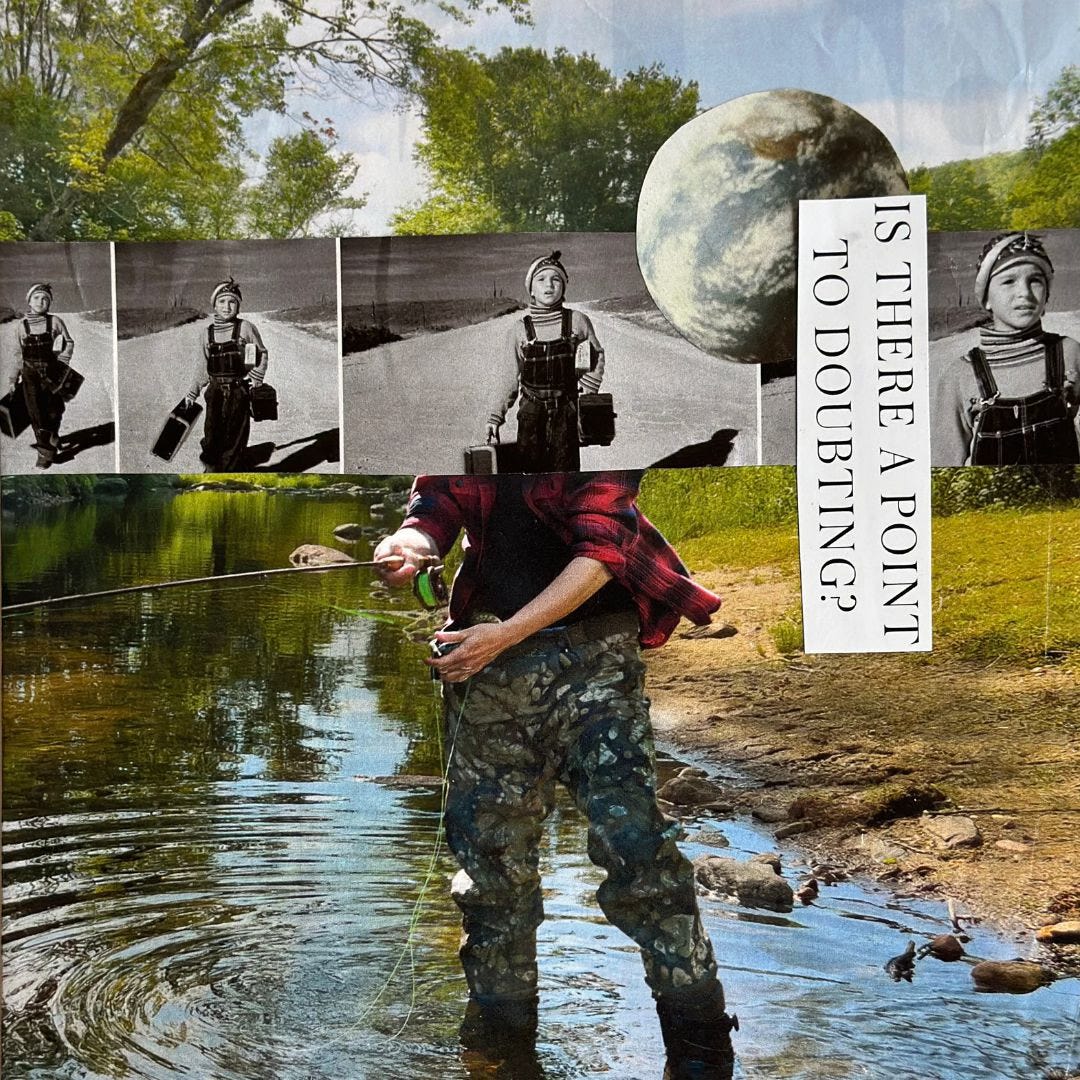What is the Opposite of a Great Poem?
I’ve been carrying an evocative question as I continue this work of "becoming".

I stopped into a Seattle art and frame store on a rainy day last January to buy a few birthday cards. As I turned a squeaky swivel card rack, my eyes landed on this permission from Walt Whitman.
“Re-examine all you have been told in school or church or in any book, and dismiss whatever insults your own soul; and your very flesh shall be a great poem, and have the richest fluency, not only in its words, but in the silent lines of its lips and face, and between the lashes of your eyes, and in every motion and joint of your body.”
-Walt Whitman, Leaves of Grass
Even though I had been at this re-examining process for years, that day I found a secret door to exquisitely evocative wisdom. I bought two. One went to my brother in Indiana, one to my friend Tera, who framed it. It meets me anew each time I visit her.
I wish I could have bought armfuls.
A friend came to visit our family not long after we’d moved away from the Midwest. We had shared “life together” in a close-knit church small group for five years. Even though that was one of the hardest times of my life, I remember it with great affection because of these friends.
Our kids played Polly Pockets and Barbies in the basement or ran around in the backyard while we read scripture and watched Nooma videos, earnestly endeavoring to live our faith. I remember sweaty little bodies with red Crystal Light-mustaches, and washing each other’s feet, Jesus-style.
In that season, the guys would do all-nighter home projects together — building fences and installing laminate flooring — the inevitable moments of exasperation were bearable in good company that was quick to laughter (and not shocked by occasional cursing).
We women took turns attending each other’s Pampered Chef parties and did all of the Beth Moore Bible Studies. We had oft-interrupted conversations over Diet Coke and coffee thick with creamer in flavors like sugar cookie and peppermint mocha.
On his visit to Seattle, our friend told us an urge was rising in him to pull on a thread of our faith tradition which no longer seemed plausible or intelligent.
“I believe the whole thing except for the flood story,” he confessed. “I just can’t reconcile that with science.”
But after pulling that first thread, another one caught his eye. He felt he was in dangerous territory, that it might be better to ignore discordant threads. This wasn’t an abstract intellectual exercise for him. Re-examining his faith could threaten the foundations of his belonging — his family, his church community, and maybe even God.
Hesitation at a consequential threshold such as this is worth listening to and honoring, slowly and carefully, and the weight of holding onto what “insults our own soul” can wreak havoc on our bodies. When our instinctual drives for connection and protection are at odds with each other, the gridlock is very hard to bear, let alone flourish within.
Because being connected to others is a non-negotiable need in our younger years, we learn to disconnect from wisdom when we perceive it threatens our belonging. Dr. Gabor Maté says, “The loss of self is the essence of trauma.”
My colleague describes what this loss of self looks like in adulthood. He says:
“Disconnection from our inner wisdom is often expressed as shame, the belief that something is wrong with us. It is the distrust or suppression of our intuition and impulses. It is experienced as a somatic disassociation with the sensations of our bodies and can become a vilification of our bodies.”2
Our need for connection remains essential to our thriving as adult human beings, but we must find a way to be connected without letting go of who we are.
I’ve been carrying an evocative question as I continue the work of becoming. It’s calling me to notice what’s happening in my body each time I get to the edge of what I’ve been told.
What is the opposite of a great poem?
I can’t quite get there with words, but something shifts in me when I invite my body into the conversation.



